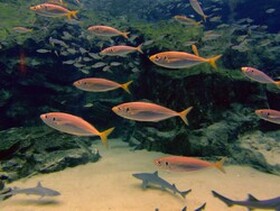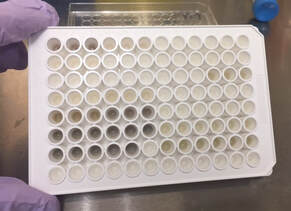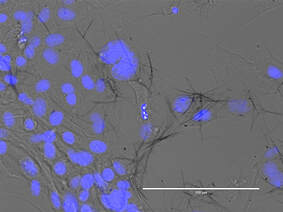The Vulpe lab uses ecotoxicology and ecotoxicogenomics methods to investigate and understand substance toxicity and the relationship between chemical exposure and ecosystem health.
- The field of ecotoxicology investigates the life cycle impacts of chemicals to organisms (mortality, reproduction, growth, behavior).
- Ecotoxicogenomics uses genomics and other molecular biology approaches to identify more informative underlying causes of chemical toxicity (what genes or proteins are affected by chemical exposure and environmental stress), and ecotoxicogenomics has the potential for identifying the underlying mechanisms of substance toxicity and better informing the safety of chemical substances.



